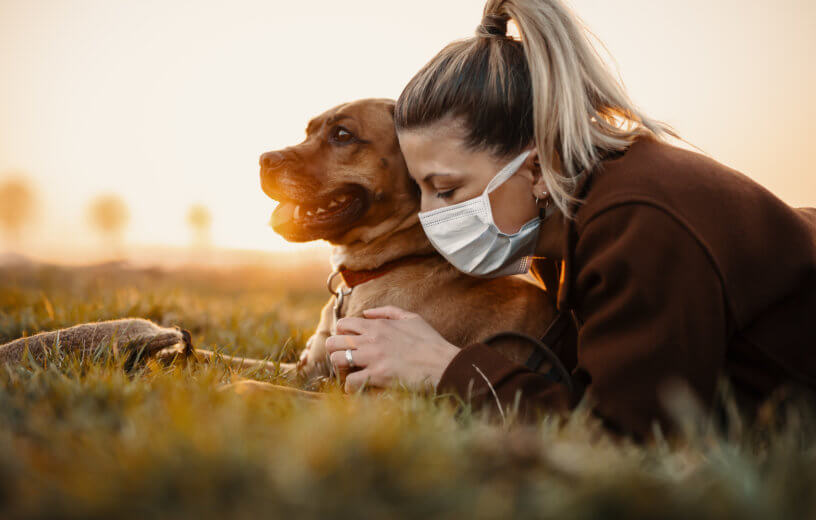RIO de JANEIRO, Brazil — Pet owners who test positive for COVID-19 should avoid contact with their furry friends, according to a new study. Around a third of dogs and 40 percent of cats carried the virus after spending time with their infected owners.
Researchers say the pets only presented mild symptoms, if any at all, but may still pass on the potentially deadly bug. In the study, some pets carried the virus for as long as 51 days after their owners tested positive. The study was carried out with 29 dogs and ten cats in Rio.
“This study demonstrated the presence and persistence of SARS-CoV-2 infection in different biological samples of dogs and cats that lived in the same residence of SARS-CoV-2 infected owners,” the authors write in their paper, published in PLOS One. “The results presented here suggest that people diagnosed with COVID-19 should avoid direct contact with their pets for as long as they remain ill.”
Dr. Calvet is one of the researchers who conducted the study. Between May and October of 2020, he and his fellow researchers tested 39 pets — 29 dogs and ten cats — belonging to 21 COVID-19 patients. Nine dogs (31 percent) and four cats (40 percent) from ten out of the 21 households were infected.
Animals tested positive from eleven to 51 days after COVID-19 symptoms began in their owners. Three dogs tested positive twice 14, 30, and 31 days apart. Antibodies were detected in one dog (3.4 percent of the group) and two cats (20 percent). Six out of 13 animals that tested positive developed mild but reversible signs of the disease. Pets who were neutered as well as those that shared a bed with the ill owner were statistically associated with pet infection.
“The investigation of the clinical signs associated with the infection and the analysis of the laboratory data of these animals suggests that pets may present from an absence of clinical signs to unspecified and mild transient respiratory and gastrointestinal manifestations, without significantly associated laboratory abnormalities. Further longitudinal studies must be carried out to confirm these findings,” the authors write.
A previous study suggested the virus is 96 percent similar to a virus found in bats, leading researchers to believe the coronavirus originated in the species before transferring to humans. Recent research revealed it may be possible the virus could be contracted by minks, which could go on to infect humans.
“It is believed that SARS-CoV-2 was originated in wild animals and, later, transmitted to humans. However, the intermediate hosts that caused the transmission to humans are still unknown. The investigation of intermediate hosts of SARS-CoV-2 can help to understand the dynamics of COVID-19 and to evaluate the possibility of zoonotic transmission,” the paper reads. “The infection of animals with the SARS-CoV-2 virus may have implications for animal health and welfare, wildlife conservation, and biomedical research. Studies have shown that some wildlife and domestic animals can be naturally or experimentally infected with SARS-CoV-2.
“However, acute infection in cats or dogs has been less reported. Few studies have demonstrated that SARS-CoV-2 infection in dogs and cats is mostly detected in animals living in households with at least one SARS-CoV-2-infected human, suggesting that the transmission may have occurred from humans to pets. It is not yet known how often this infection occurs, as well as whether animals develop clinical signs and whether there is a zoonotic and animal transmission of this virus under natural conditions,” the authors conclude.
SWNS writer William Janes contributed to this report.
